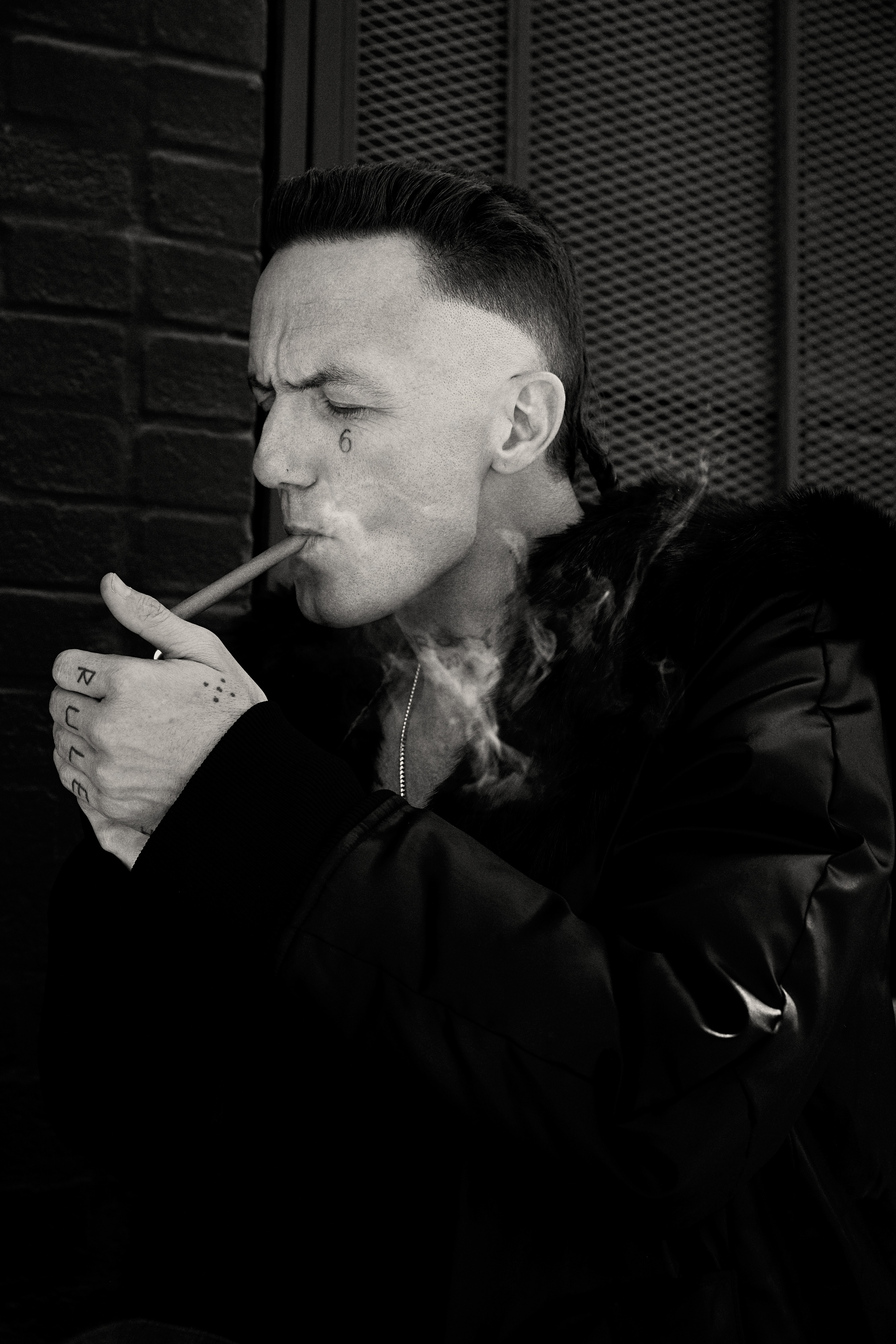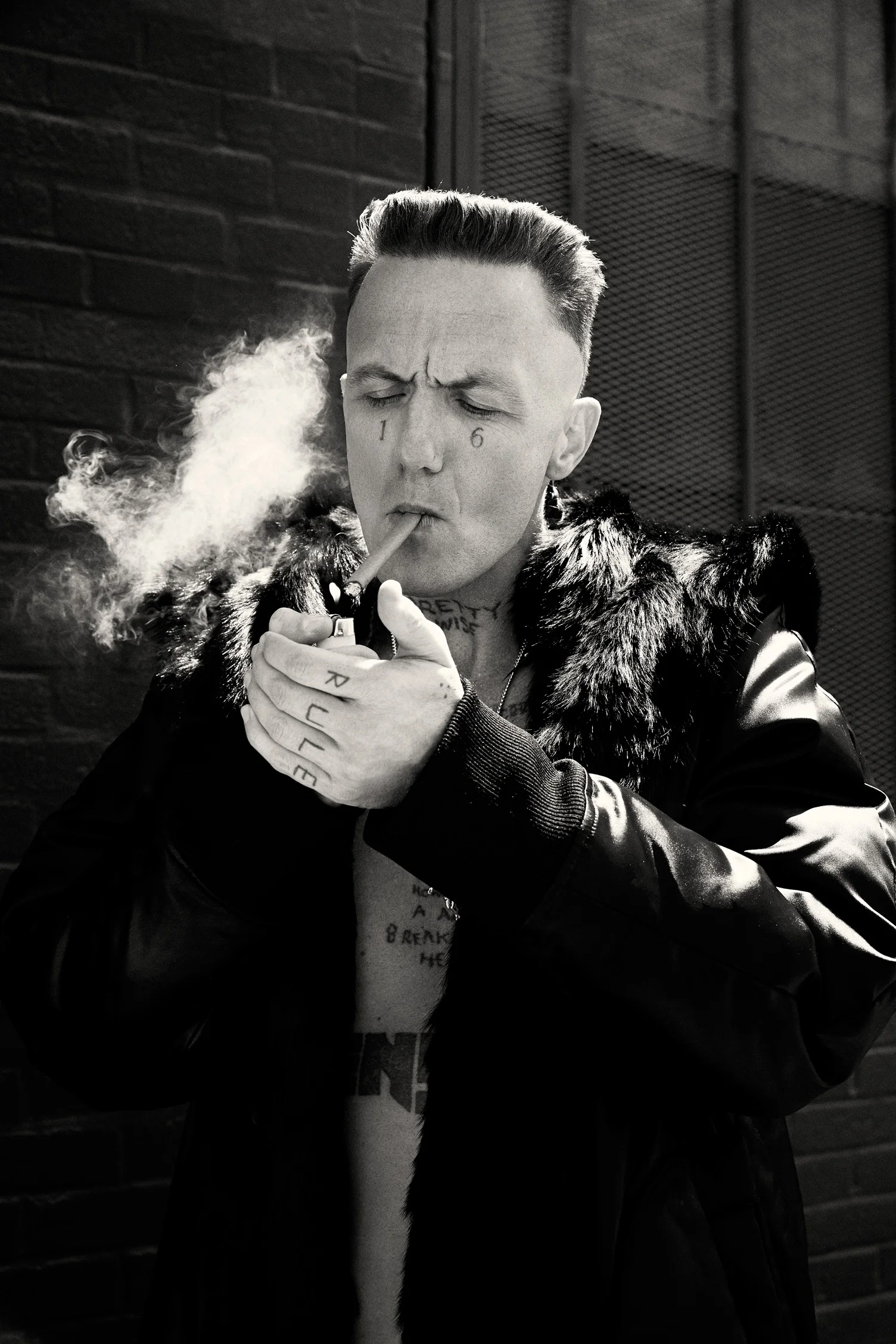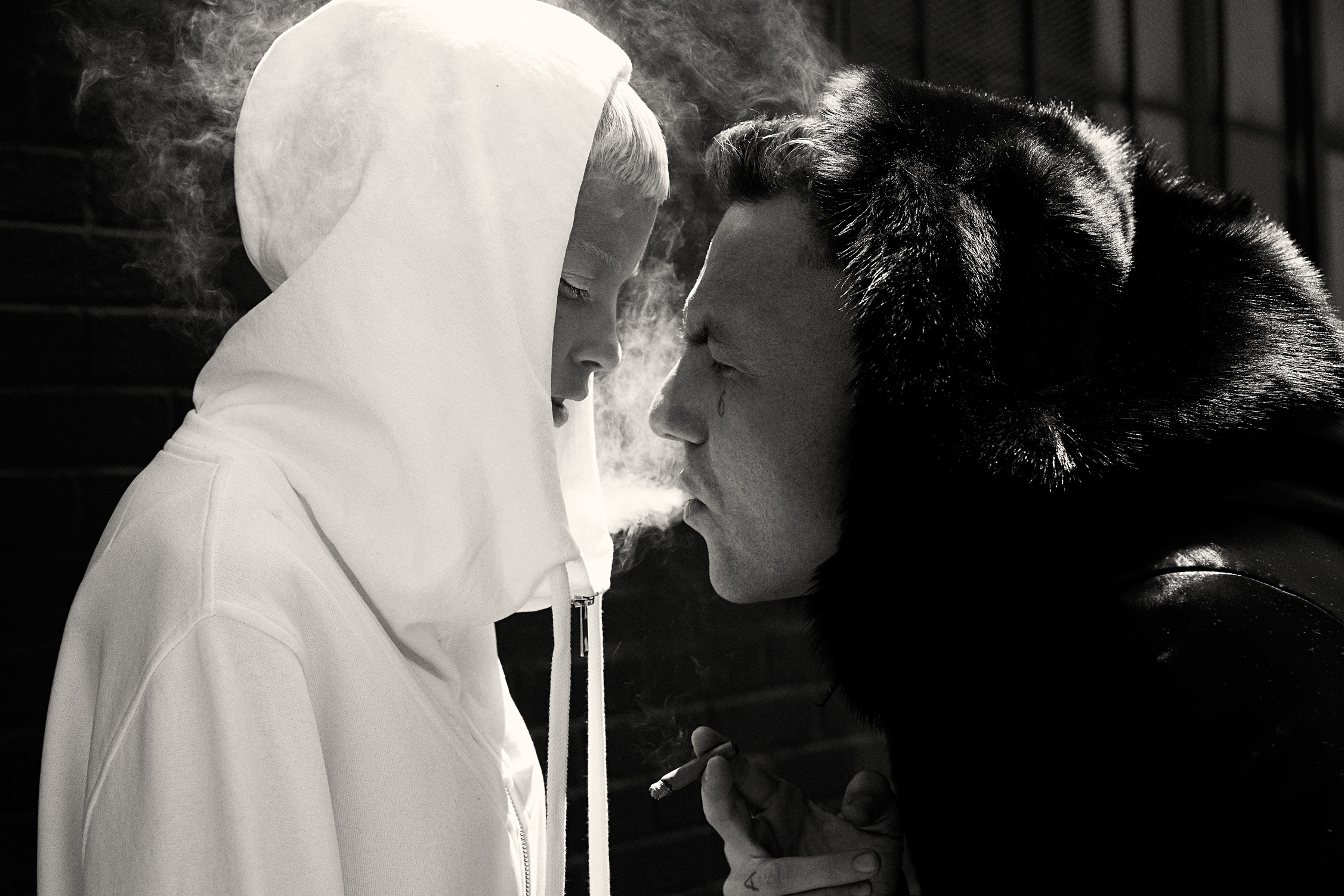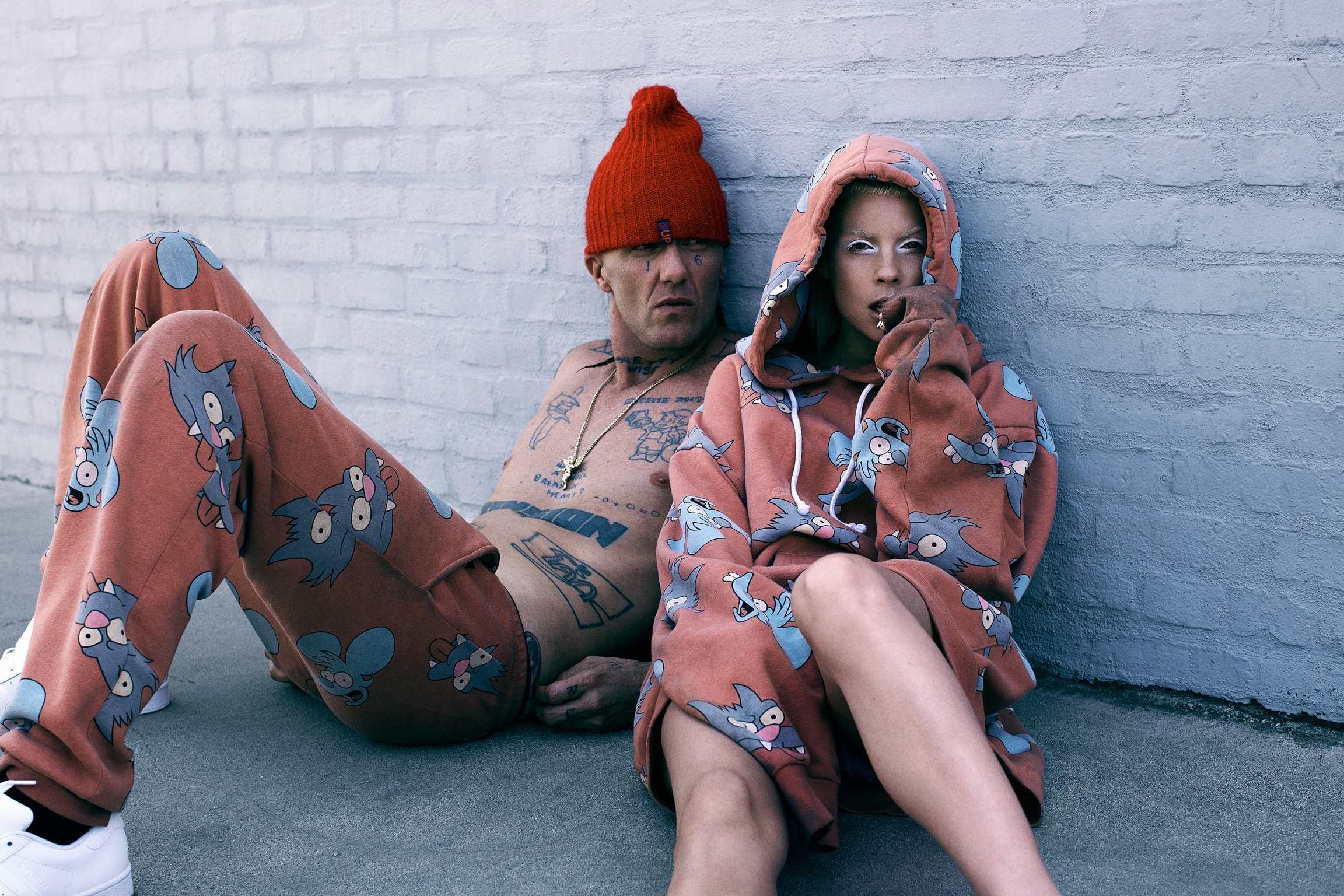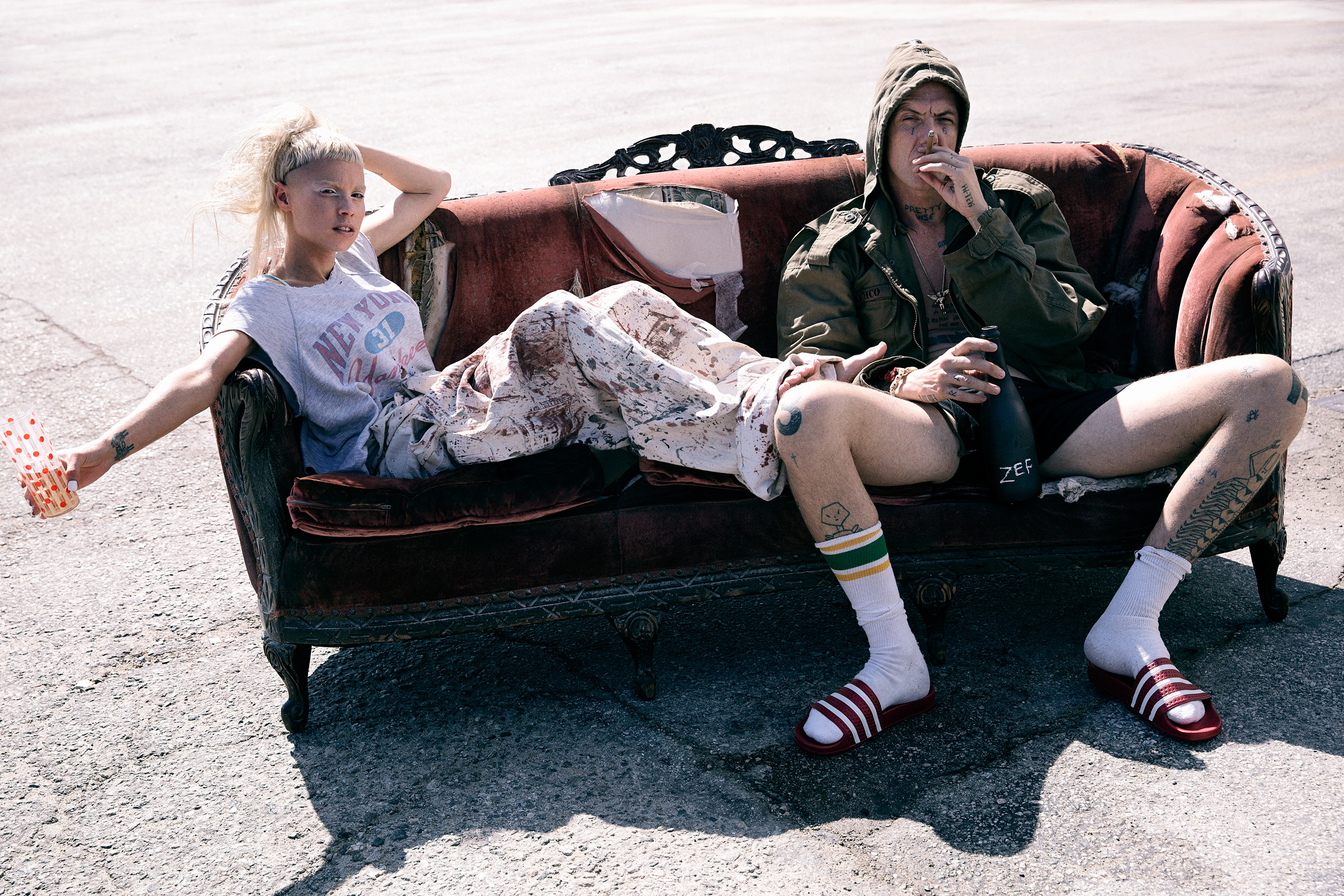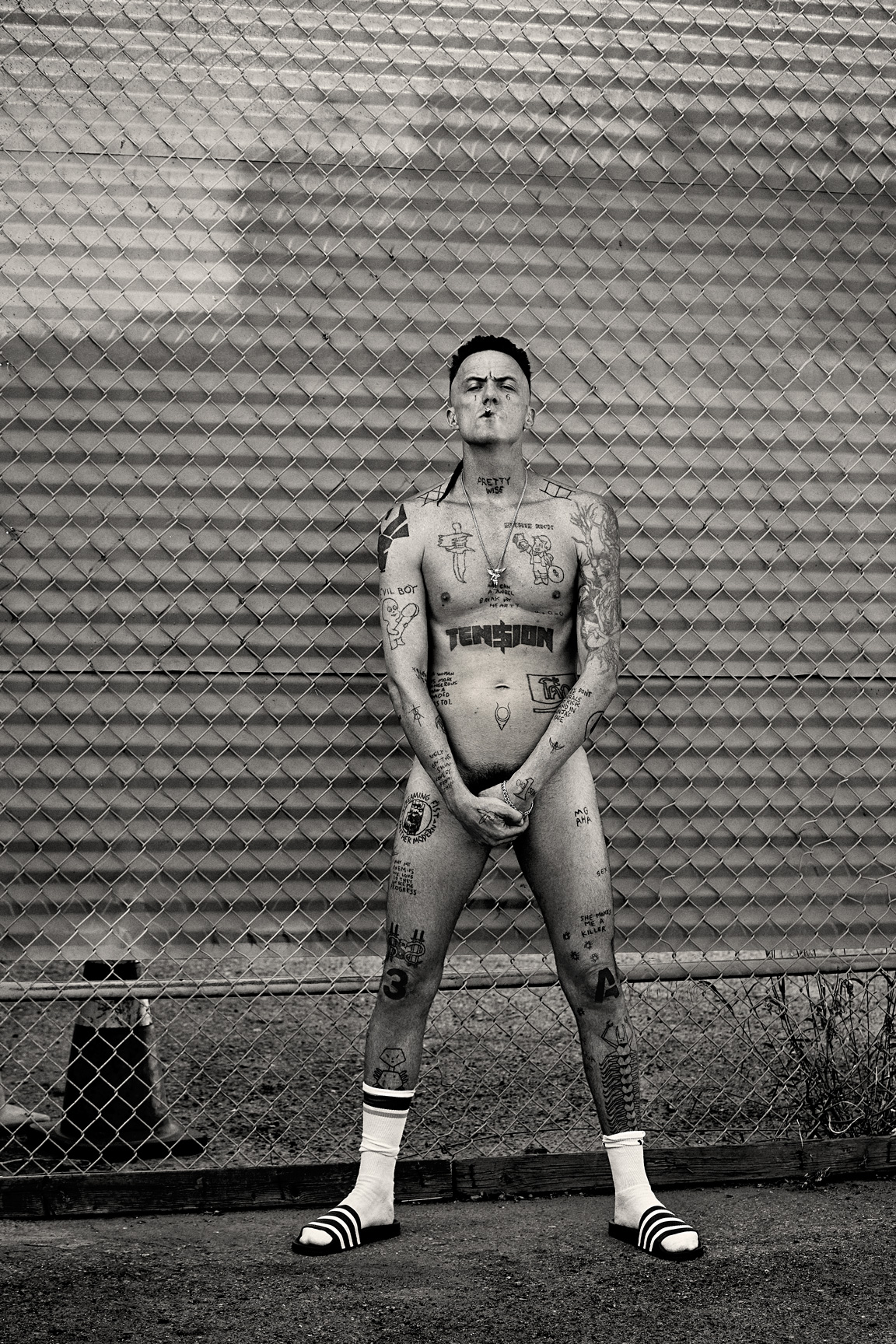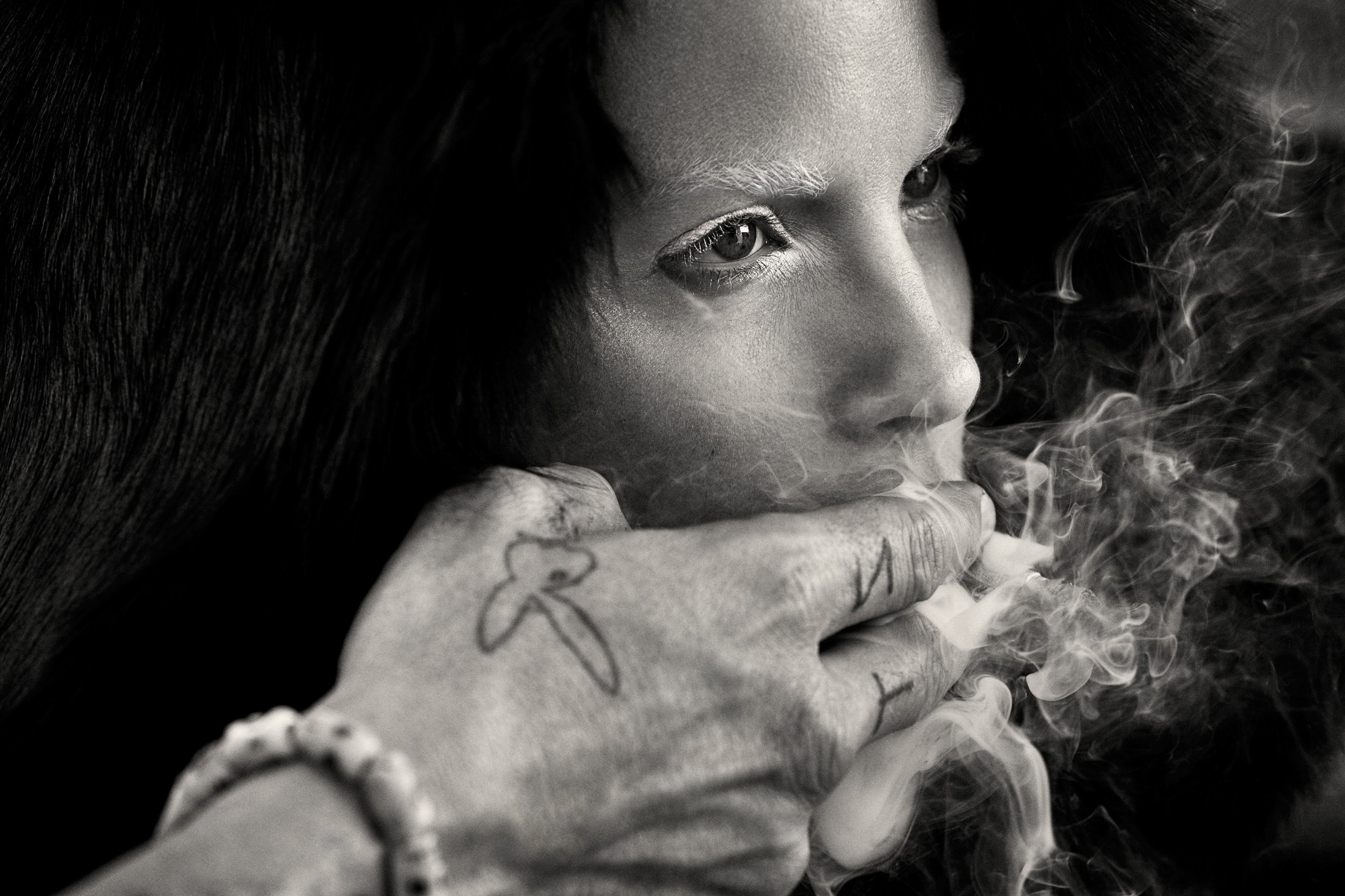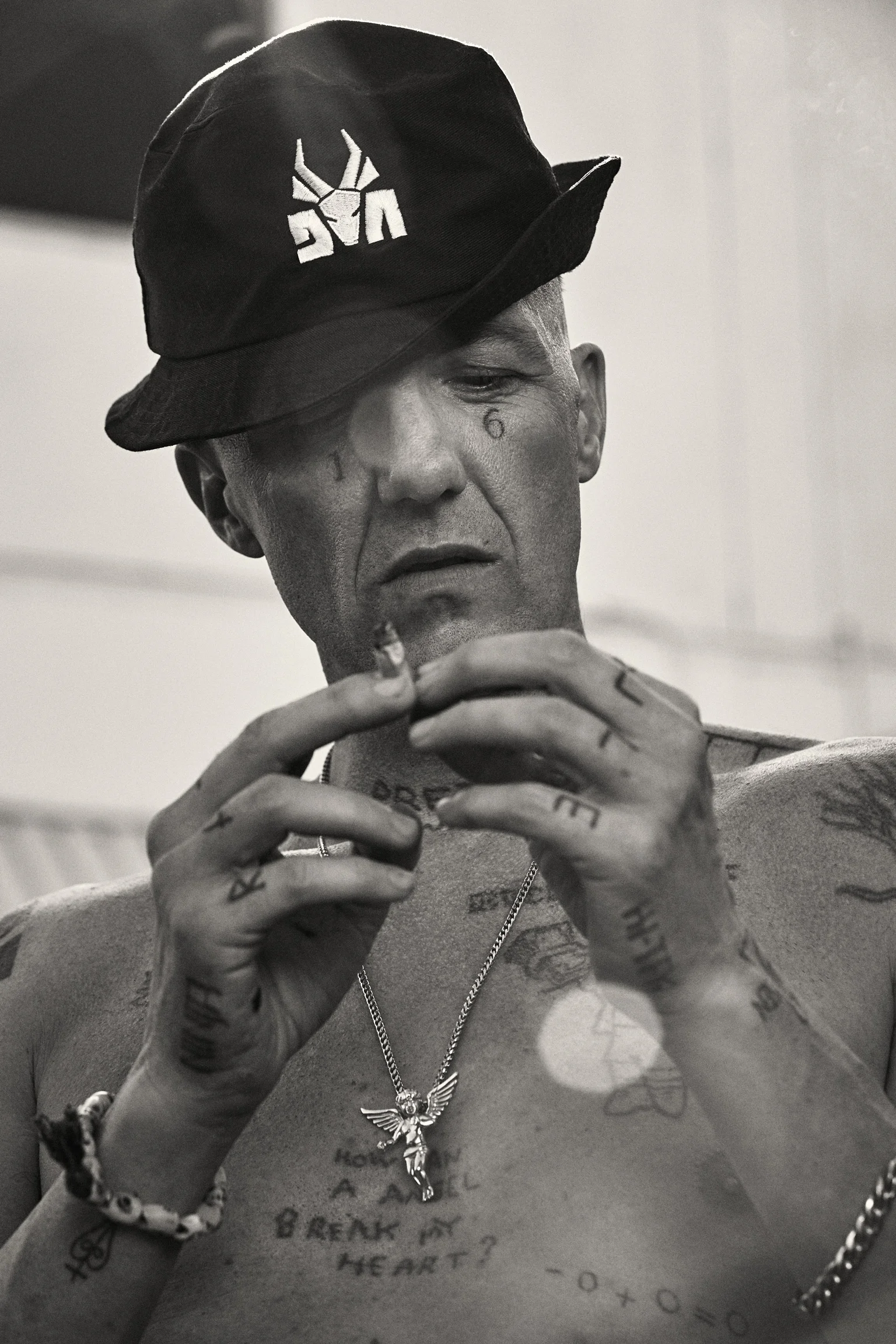Die Antwoord’s Ninja speaks to us about calling it quits and what’s next
by Bill DiDonna
DKNY coat.
DKNY coat.
Left to right: DIESEL hoodie. DKNY coat.
DIESEL hoodie.
Talent’s own clothing.
Talent’s own clothing.
Talent’s own clothing.
Talent’s own clothing.
Left to right: Stylist’s own shirt and overalls and ADIDAS slides. Talent’s own jacket and socks and ADIDAS slides.
FAITH CONNEXION coat.
FAITH CONNEXION coat.
ADIDAS slides and talent’s own socks.
Left to right: MAHARISHI pants available at 424 Fairfax, and talent’s own sneakers, hat and jewelry. DKNY coat and talent’s own sneakers.
DKNY coat.
Talent’s own hat and jewelry.
DKNY coat.
Die Antwoord’s Ninja speaks to us about calling it quits and what’s next
"You can only burn so hot for so long. Yolandi, she stirred up all this shit in me, but I’m not a spring chicken. I’ve been rapping since I was 14. We got known through some miracle. We’ll drop these last two then on to the new shit.”
Given that he has a penchant for appearing in larger-than-life freak-ball videos, when the South African rapper-cum-surrealist showman Ninja goes to the freezer and pulls out half a dozen bottles of Veuve Cliquot, I envision a crazed bacchanal, but alas, they are props for the shoot that’s about to happen and are not yet cold enough to foam up properly. Instead, Ninja opts to attack a water and some carrot sticks—my rock star dream evaporating like the bubbles. Ninja, Yolandi Visser, and DJ Hi-Tek (who has remonikered as God) are the trio behind Die Antwoord (Afrikaans for ‘The Answer’) one of the seminal pop bands of the their generation. Propelled from Cape Town obscurity to Los Angeles notoriety, they have created a one-of-a-kind intersection of sonic punches in the face and comically disturbing videos that have amassed hundreds of millions of views, and now they sell-out shows around the world. “It has to be surprising—that is the only characteristic of that work.” Ninja explains between carrots, “I mean the cartoon violence. We’re from South Africa. There’s this murder-death-kill shit around you all the time.”
A nom de guerre for a rapper is as expected as a New Year’s Day hangover. Few though, have created an alter ego as complete and loopy as Watkin Tudor Jones—aka ‘Ninja’ from Die Antwoord: a human looney-tune complete with prison tats, metal grill, and that instantly recognizable crazy-man face.
I point out to Ninja that everyone has a secret self—everybody grabs a hairbrush and sings along to a song in their bedroom—but Ninja’s secret self is now one that everybody knows. So who’s got the upper hand in the identity game, the ego, or alter-ego?
“That is a fucking dope question.” Ninja admits, “My first rap name was Yang Whip, it means penis in Chinese. Then I had about a million others: I was Max Normal, psychopath in a suit. I always related more to my rap alter ego than my real one, Bruce Wayne always just wants to be Batman. We were working on this movie, South African Ninja and I tried to come up with the worst fucking rap name ever. Ninja. What grown man would call himself Ninja? Yolandi Visser is the un-coolest name in South Africa. I don’t even think there is an equivalent of level of un-coolness in America. It was a joke.”
But punch-lines can have unintended consequences: “I fell in love with the guy.” Ninja explains, “The filters were off. It was invigorating. I could just shut down and act stupid and have fun, I was playing and my flows were, like, tripping off the charts. But now the secret self is the dude who cries on his own, the guy who gets depressed, or feels confused about life as he works shit out. That’s my secret self, that’s not me. Then Ninja comes and says: ‘What are you fucking doing? Snap the fuck out of it or that’s the way you’re going to be.’ Everything you think about, you actualize. I became Ninja. To remain Ninja, to remain that immovable kind of figure—that’s it, I’m confident, I’m not scared of shit, not even death.”
The new Die Antwoord album Mount Ninji And Da Nice Time Kid has been developed with seminal hip-hop producer DJ Muggs of Cypress Hill fame, and it’s a relationship that has garnered sonic evolution. “He’s literally my favorite human on the planet.” Ninja says with sincere admiration. “He has this sonic aesthetic that is just fucking gorgeous. It was a total pipe-dream to work with him and we just bumped into him at a quinceanera. Our friend Estevan Oriol the photographer invited us. We had no idea what it was [a Mexican tradition of celebrating your daughter’s 15th birthday with a lavish party] and I was like wearing a pair of pants with porn images screened on them and people were really dressed up and we felt like, ‘oh shit.’ And all of a sudden all these OG’s with tattooed faces were coming up to us saying ‘I really like your shit,’ it was one of those times I really liked taking all the selfies because we do a lot of them. Estevan has this posse, the ‘Soul Assassins,’ musicians and artists in East L.A. and comes over and introduces us to Muggs. Yolandi almost fell out of her chair.”
Mount Ninji And Da Nice Time Kid is a smorgasbord of auditory treats—reflective and forward-looking in turn, with dark alleys populated with crazed carnival musicians urging you to come in and have a look. “Muggs schooled us creatively and on a whole bunch of music business shit,” Ninja acknowledges. With an L.A. producer, and an album born in L.A.—the fingerprints of the city are all over the new work, yet it remains distinctly Die Antwoord: “The reality here is fairly utopian.” Ninja acknowledges with the seriousness of someone who has seen a few things, “First world versus third world. It’s like you’re living in the real world and you come here and it’s a Zen temple where you can meditate and you have this empty space where you can put it all together. You go live your life in Africa and then you come to this cocoon where you can do your work.”
I ask Ninja about downtime, and whether he can ever choose to not be Ninja.“I was really interested in going to a psychiatrist or a psychologist.” He tells me, honestly. “Sometimes I feel a bit mental, if I’m writing and making tracks then I feel okay. But if not, I start to lose it and I need to know what the fuck is going on in my life. I need to have it told to me, shown to me. I can’t stop. I get depressed if I’m not moving and it affects everyone around me.” Ninja explains, “Yolandi and I have a kid. Highly ambitious plans make me feel safe, relaxed. The music for me, that’s what I’m about.”
As for what his next highly ambitious plans might be, Ninja is forthright: “It’s our last album. Not this one—the one dropping at the end of ’17. We’re making five albums and then that’s it.” Ninja shows me the five spot die tattooed on his hand. “It’s a big twisted surprise. Not twisted in a bad way. In a cool way. A dope twist. There is something cool about retiring.This shit we’re dropping now is amazing but pop’s for kids. We make pop music—we can’t concern ourselves that pop music is shit now. That’s what we do. You can only burn so hot for so long. Yolandi, she stirred up all this shit in me, but I’m not a spring chicken. [Ninja is 41 as of this writing] I’ve been rapping since I was 14. We got known through some miracle. We’ll drop these last two then on to the new shit.”
Video clip from Flaunt's photoshoot with Die Antwoord
Photographer: Zoey Grossman for Art Department.
Stylist: Zoe Costello for Jed Root.
Hair: Christine Nelli for Exclusive Artists Management using Shu uemura Art of Hair.
Makeup: Dana Delaney for The Rex Agency using Nars.
Manicure: Reina Santos for Nailing Hollywood using Formula X in White Matter.
Film Directed by Zoey Grossman
Cinematography by Jordan Ritz
Edited by Phil Sanchez

